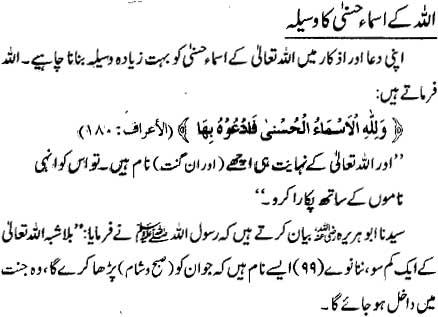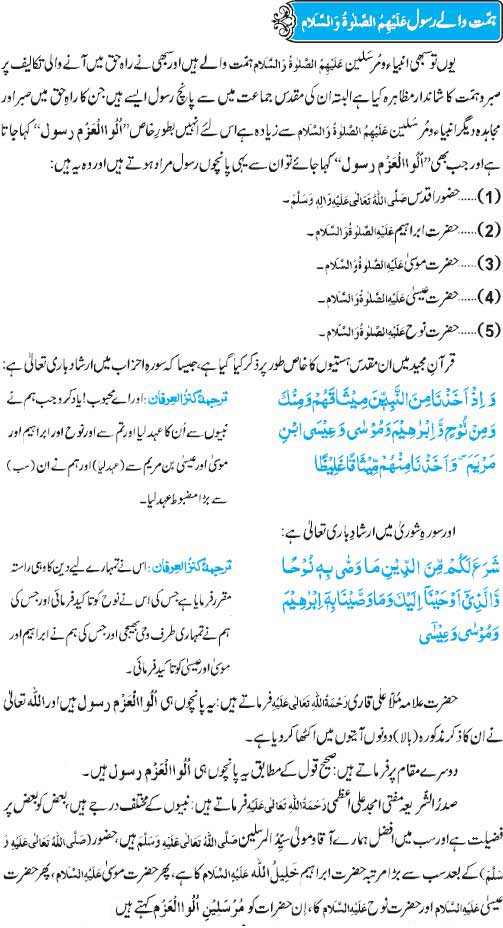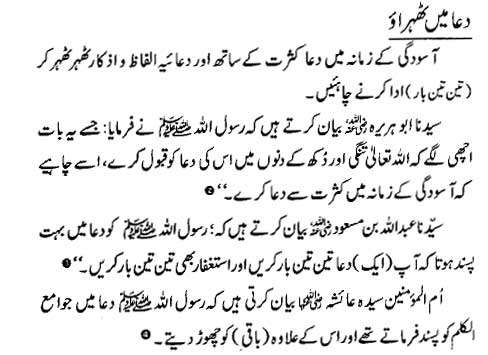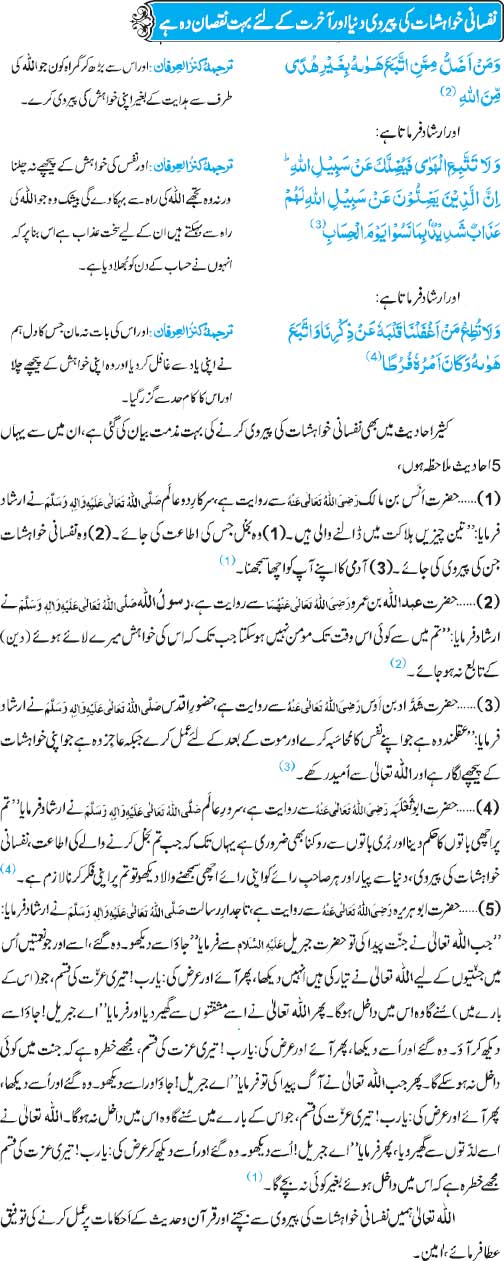
Cleanliness: Wudu (Ablution)
It is highly virtuous to remain in Wadu condition at all times. The general rule is one should make fresh ablution before each prayer, however, one’s wadu is valid until unless the following one of the eight (8) conditions take place known as the nullifiers of Ablution (Nawaquid of Wudu), namely:
Things which Nullify Wudhu:
- Discharging urine; feces, or any other matter from these passages.
- Passing stomach gases from the back.
- The flow of blood, or pus from any part of the body.
- Mouthful-vomiting.
- To fall asleep, while lying down, or when leaning against something.
- Fainting due to illness, or for any other reason.
- Going mad; insane.
- Laughing aloud in Prayers (Salat)
If a person requires wadu he or she is in a state of Hadather Asghar. It is makrooh Tahrimi to touch the Holy Quran or even the empty spaces of the pages. but is permissible to recite the Quran without touching. If a verse of the Holy Quran is written on a page that is not a part of the Holy Quran i.e., books, or newspapers, it will be permissible to touch the book or page but not the verse. minor children may touch the Quran without Wudhu, It is not permissible to perform Salaat.
Islamic ablution (Wudu) consists of many actions Some actions are absolutely obligatory’ (Fard). without these actions the ablution is invalid. There are some actions that may be left out, the ‘ablution’ will not be invalidated; though it will be improper (Naquis). Such actions are called ‘Sunnah’. There are certain other actions that bring greater blessings of Allah, known as ‘desirables’ (Mustahab’bat). If these are left out, no harm is done
No doubt clean water plays important role in achieving purity, alternatively in absence of water or health reasons the dry ablution is ordered by Almighty Allah.
Obligatory (Fard) actions in Ablution:
There are four compulsory actions (Fard) in Ablution:
- Washing the face from the hair of the forehead to the lower portion of the chin, and across from one ear to the other;
- Washing both hands and arms up to the elbows.
- Performing the Masa’h (wiping with wet hands, one-fourth of one’s head).
- Washing both the feet up to the ankles.
Sunnah actions in Ablution:
- Saying the Intention (Niyyah).
- Reciting ‘Bismillah’.
- Washing the hands, three times, up to the wrists.
- Brushing teeth with a tooth-stick (Miswak).
- Rinsing the mouth, thrice.
- Sniffing water into the nostrils, thrice.
- Combing (doing Khilal) the beard with the fingers.
- Passing fingers of both hands, against each other, and also passing them through the toes (Khilal of fingers and toes).
- Washing, each limb, three times.
- Performing the Masa’h once over the whole head i.e. wiping head with wet hands.
- Performing the Masa’h of the two ears.
- Performing Ablution (Wudu) in proper order.
- Washing each part, one after the other, without pause, to ensure that no part dries up before the next step.
Desirable (Mustahab) actions in Ablution:
- To begin Ablution (Wudu) from the right side Some scholars regard this among the Masnun (Sunnah) acts. This is quite likely.
- Performing ‘Masa’h’ of the nape.
- Performing Ablution all by himself, without taking others’ help.
- Facing Qiblah.
- Performing Ablution while sitting at a clean and elevated place.
Undesirable (Makrooh) actions in Ablution:
- Performing Ablution in a dirty place.
- Blowing one’s nose with the right hand.
- Talking worldly affairs while performing Ablution.
- Performing Ablution in a manner contrary to Sunnah.
Complete list of actions in Ablution:
- With the intention of saying the prayers (Salat) one should take running clean water (or take water in a clean bucket etc.
- Wash hands up to the wrists.
- Rinse the mouth three times; brush the teeth.
- Sniff water into each nostril, three times; cleanse the nose.
- wash the face, three times.
- hands, up to the elbows.
- Perform ‘Masa’h of the head and ears (moving palms of wet hands overhead, starting from the top of the forehead to the back and passing both hands over the back of the head to the neck.
- Rub wet fingers into the grooves of both ears and holes, and also pass the wet thumbs behind the ears).
Wash the feet, including the ankles.
Ulul’azm Ambiya: Himmat Waley Rasool

Cleanliness Of The Body And Prayer
The Islamic prayer ( salat ) is a special way of worshipping Allah and offering devotion to Him which has been taught by Allah, the Almighty, and by the Holy Prophet (Peace be on him). There are seven pre-requisites of Prayers. Without all these, Prayer is not valid. These are the essentials of Prayers’, and hence obligatory (Fard).
Seven pre-requisites of Prayer:
- Cleanliness of the body.
- Cleanliness of the clothes.
- Cleanliness of the place (where Prayer is being offered).
- Hiding (covering) parts of the body ordained to be covered (i.e. the Satr).
- Time is proper for the Prayer.
- Facing the Qiblah.
- Saying the ‘intention’ (Niyyah).
The body’s cleanliness means that it should be free from all impurities (Najaasat).which are of two types:
1. Visible impurities (Haqeeqi), such as urine; feces; blood, or wine.
2. Invisible impurities (Hukmi). which are two types.
a. Lesser type or minor uncleanliness is known as ‘Hadath Asghar in such case Ablution (wudu) is required.
b. Major uncleanliness’, known as ‘Hadath Akbar and Janabat’. in most cases can only be removed from the body by taking a bath (Ghusl)
Before doing ablution one must be sure that he or she is correct, In what circumstances does the bath become obligatory? and the proper method to perform the bath. bath (ghusl) It is also a practice of Muslims to clean their private parts after the call of nature
The ablution is necessary for obligatory, sunnah, and optional prayers; reciting and touching the Holy Qur’an; Sajdah-e-Talawat, offering funeral prayers; or many other kinds of worship.
Authority of ablution in Holy Quran sura-. Maida (5:6) Allah says:
O you who believe! When you rise up for prayer, wash your face, and your hands up to the elbows, lightly rub your heads, and (wash) your feet up to the ankles. And if you are unclean, purify yourselves. And if you are sick or on a journey, or one of you comes from the closet, or you have had to contact with women, and you find no water, then go to clean, high ground and rub your faces and your hands with some of it. Allah would not place a burden on you, but He would purify you and would perfect His grace upon you, that you may give thanks.
Dua Mein Therao

The Dead Will Be Shown Their Seat In Paradise And Hell
Then Allah will ask them: “For how many years did you stay on earth?” (Al-Mu’minun 23:112)
They will say: “We stayed for a day or part of a day.100 Ask of those who keep count of this.” (Al-Mu’minun 23:113)
He will say: “You stayed only for a while if you only knew that. (Al-Mu’minun 23:114)
Did you imagine that We created you without any purpose and that you will not be brought back to Us?” (Al-Mu’minun 23:115)
Ibn ‘Umar {r.a.}reported .. Allah’s Messenger (may peace be upon him) as saying:- ” When any one of you dies, he is shown his seat (in the Hereafter) morning and evening”. “If he is amongst the inmates of Paradise (he is shown the seat) from amongst the inmates of Paradise. and if he is one from amongst the denizens of Hell (he is shown the seat) from amongst the denizens of Hell, and it would be said to him:- “That is your seat until Allah raises you on the Day of Resurrection” (and sends you to your proper seat).
[Source:-Sahih Muslim Book 040, Hadith # 6858].
Anas b. Malik reported:- Allah’s Apostle (may peace be upon him) said:- When the servant is placed in his grave and his companions retrace their steps he hears the noise of the footsteps, then two angels come to him and make him sit and say to him:- What you have to say about this person the Holy Prophet (may peace be upon him)?
If he is a believer, he would say:- I bear testimony to the fact that he is a servant of Allah and His Messenger.
Then it would be said to him:- Look to your seat in the Hell-Fire, for Allah has substituted (the seat of yours) with a seat in Paradise
Allah’s Messenger (may peace be upon him) said:- He would be shown both the seats.
Qatada said:- It was mentioned to us that his grave (the grave of a believer) expands to seventy cubits and is full with verdure until the Day when they would be resurrected.
[#2/Source:-Sahih Muslim Book 040, Hadith # 6862. ]
“All that is on earth will Perish. But will abide {Forever} the Face of thy Lord, full of Majesty, Bounty and honor”{‘Quran’- Surah Al-Rahman-55.26-27 }
I Want to Die With my Forehead on the Ground!
The Sunnah in my Heart, Allah on my Mind,
Qur’an on my Tongue, and Tears in my Eyes!
‘Insha Allah’!
Maidan E Qitaal Aur Tarbiyat Ka Ehtamam

By Hafiz Muhammad Idrees
Bidding Final Farewell To The Most Beloved
When news of the death of the Prophet (peace be upon him) was known, people were stunned. The believers felt that the whole city of Madinah sank into total darkness. They were like young children losing their parents. They did not know what to do. Despite the repeated hints by the Prophet of his impending death and the fact that the Qur’an mentions that possibility clearly, to lose him was, for his companions, something they could not imagine or visualize. He lived among them as one who was dearer to them than their souls. He was the sun of their lives. His death meant that they had to live in absolute darkness. For the Prophet to be withdrawn from their lives meant to them a vacuum that could never be filled. It was an event, which they could not imagine or comprehend. Some of them were physically paralyzed, others were dumb, and others still made statements, that they could not have thought out properly.
Umar ibn Al-Khattab himself could not make a proper judgment. He stood up to address the people and said: “Some hypocrites are alleging that God’s Messenger has died. God’s Messenger has not died. He has gone to his Lord as Moses (peace be upon him) had done before and was away from his people for 40 nights. He then returned after people had said that he had died. I swear that God’s Messenger shall return and chop off the hands and legs of those who allege that he has died.”
As Umar was making his speech, Abu Bakr arrived. He paid no attention to anything going on around him until he went into the room of his daughter Lady Ayesha, the Prophet’s wife. Abu Bakr went straight to uncover the Prophet’s face, knelt down, and kissed him, saying: “My father and my mother may be sacrificed for your sake. The one death that God has decreed that you shall experience, you have now had. You shall never die again.”
He covered the Prophet’s face and went out to find Umar still speaking to the people. Abu Bakr said to him: “Listen to me.” Abu Bakr began by praising God and thanking Him for His grace. He then said: “People, if any of you has been worshipping Muhammad, let him know that Muhammad is dead. He who worships God knows that God is always alive; He never dies.” He then recited a verse of the Qur’an, which may be translated as follows: “Muhammad is but a messenger before whom other messengers have passed. Should he die or be slain, would you turn back on your heels? He who turns back on his heels shall do God no harm. God shall reward those who give thanks to Him.” (3: 144)
When people heard Abu Bakr reciting that verse of the Qur’an, they seemed as if they had never heard it before. They had indeed heard it repeatedly, and they repeated it then. Umar said: “When I heard Abu Bakr reciting that verse I was stunned and perplexed. I fell down to the ground, feeling that my legs could not support me. I realized, however, that God’s Messenger was dead.”
The next thing to be done was to prepare the Prophet’s body for burial. His body needed to be washed like every dead person. Ali ibn Abu Talib, the Prophet’s cousin, and Al-Abbas’ two sons, Al-Fadl and Qutham, as well as Usamah ibn Zaid and Shaqran, the Prophet’s servant, were given that task. Aws ibn Khawli, a man from the Ansar, appealed to Ali to let him also attend. Ali supported the Prophet’s body on his chest, Al-Abbas and his two sons helped him turn the Prophet’s body while Usamah and Shaqran poured the water and Ali washed him.
Ayesha reports that when they were about to start washing the Prophet’s body, they did not know whether to take off his clothes or to wash him with his clothes on. They were in disagreement when they were overtaken by sleep. All of them sat down and dozed off. They heard a voice telling them to wash the Prophet’s body with his clothes on, so this was how they did it. They poured the water over his shirt and rubbed his body holding his shirt. They did not insert their hands underneath his shirt.
When they had finished washing him, they wrapped him in three robes. There were several suggestions concerning where to bury the Prophet. Some people suggested that he should be buried in his mosque. Others suggested that he should be buried alongside his companions. Abu Bakr, however, told them that he heard the Prophet say: “Every Prophet was buried in the place where he died.” That settled the matter. The bed on which the Prophet died was removed and his grave was dug there.
After the Prophet was wrapped for burial, he was put on his bed. Abu Bakr and Umar entered the room and said: “Peace be upon you, Messenger of God, with God’s mercy and blessing.” A number of the Muhajirin and the Ansar went in with them, as many as the room could accommodate. They spoke the same greetings and stood up in rows to offer the prayer for the deceased, the Janazah prayer. No one led the prayer as an Imam. Abu Bakr and Umar, however, were in the first row next to the Prophet. They said: “Our Lord, we bear witness that he has conveyed to us what has been revealed to him, given good counsel to his nation, struggled for God’s cause until God has given triumph to His religion at his hands, and until God’s words were complete. People believed in Him alone without partners. Our Lord, place us with those who follow the word revealed to him and join us to him so that he recognizes us and You make us known to him. For he was compassionate and merciful to those who believed.
When they had finished they left the room to allow another group of the Muslims to go in and offer the Janazah prayer for the Prophet. They were followed by other groups as the room could accommodate. When all men had offered their prayers, women went in also in groups to do the same. Children then followed in groups. However, there was no congregational prayer for the deceased. Everyone prayed on his own. This took the whole of Tuesday and the Prophet was buried on Wednesday.
Most reports confirm that the Prophet was 63 when he died, although some suggest that he was 65. Normally, prophets start to receive their revelations at the age of 40. The Prophet lived after that for 13 years in Makkah and 10 years in Madinah. That he was 63 is perhaps more accurate.
Nafsani Khwahishat Ki Perwi Dunya Aur Akhrat Kay Liye Nuqsan Deh Ha

A Virtue Called Patience
Will being impatient and fretting about things we cannot change, change anything?
To be patient and let things run their course as they should, is one of the secrets of happiness and contentment.
My father seemed to sense my impatience. “The big ones didn’t get that way by snapping the first thing to hit the water,” he said quietly. “You’ll soon find that anything big and worthwhile usually takes a lot of time.” Patience is one of the most important qualities demanded of those who claim to love Allah, as the degree of patience determines those who are sincere in their claim and those who are not. The degree of patience needed to endure hardship and difficulties in order to please the Beloved proves the sincerity of one’s love. Many claim to love Allah, but when Allah tests them with hardship, they forget the true essence of love. No one can adhere to the love of Allah except those who are patient and persevering (as-sabintri). If it were not for the test of hardship and sincerity, there would be no proof of the sincerity of a person’s love for Allah. The one whose love of Allah is greater has a greater degree of patience. Therefore, Allah has attributed the quality of patience to His close friends (awliya) and most beloved. He said about His beloved slave Ayyub (AS): “… Truly We found him full of patience and constancy. How excellent Our service is! Ever did he turn (to Us)!” (Sad 38: 44) Allah instructed the most beloved to Him of everything He created to have patience in accepting His decree and told him that patience comes only with the help of Allah. He praised those who have patience and promised them the best of rewards: the rewards of others are defined and limited, but the reward of as-sabirun is without measure. Patience is vital at all levels of Islam, Iman, and Ihsan, as well as being a major element in iman (faith) and tawakkul (putting one’s trust in Allah). Patience for the sake of Allah, by the help of Allah, and in accepting the decree of Allah.
1. Patience for the sake of Allah, hoping for His rewards and fearing His punishment.
2. Patience by the help of Allah, as man realizes that he has no patience himself, and has no power to acquire patience. Rather, he knows: “there is no power and no strength except by (the help of) Allah.”
3. Patience in accepting the decree of Allah, as man realizes that Allah is the only one Who is controlling the affairs of the universe, so he will patiently accept the ruling and decree of Allah, regardless of what it may mean for him in the way of ease or hardship.
Patience is half of Iman, Iman is in two halves: half is patience (sabr) and half is gratitude (shukr). Therefore Allah has mentioned patience and gratitude alongside one another: “… Verily in this are Signs for all who constantly persevere and give thanks” (Ibrahim 14: 5; Luqman 31:31; Saba 34: 19; ash-Shura 42: 33) The reasons why one half of iman is patience and the other half is gratitude are as follows: Iman is a term which covers words, deeds, and intentions, all of which are based on one of two things, action or abstinence. Action refers to performing a deed in accordance with the instructions of Allah, which is the reality of gratitude. Abstinence, as in refraining from the wrong action, requires patience. The whole of religion is embodied in these two things: carrying out that which Allah has commanded, and refraining from that which Allah has prohibited. Iman is based on two pillars, yaqin (conviction) and patience, which are referred to in the following ayah: “And We appointed, from among them, leaders, giving guidance under Our command, so long as they persevered with patience and continued to have faith in Our Signs” (As-Sajdah 32: 24) It is through faith that we know the reality of Allah’s commands and prohibitions, of reward and punishment, and it is through patience that we carry out His instructions and abstain from that which He has prohibited. Man is constantly being pulled in two opposing directions: should he respond to the lure of this world of desires and pleasures, or should he answer the call of Allah and the hereafter, with the eternal Paradise that Allah has prepared for His friend (Wali) Going against the call of whims and desires is patience, and responding to the call of Allah and the hereafter is gratitude.
Emulating the attributes of Allah
If a person loves an attribute of Allah, then this will help him to reach Him. Allah is as-Sabur, patient, and there is none that is more patient and forbearing than Him. It was reported that Allah revealed to Dawood (AS), “Have my attributes, as one of My attributes is that I am Sabur (patient).” Allah loves His attributes and characteristics, and He loves to see the effects of His attributes on His slaves. As He is beautiful, so He loves beauty; as He is all-forgiving, He loves forgiveness; as He is generous, He loves generosity; as He is all-knowing, he loves people of knowledge; as He is strong and powerful, so a strong believer is more beloved to Him than a weaker one; as He is Sabur (patient), so he loves those who have patience; as He is shakur (grateful), so He loves those who give thanks. As He loves those who have His characteristics, so He is with them, and this is a special and unique type of companionship.
Sickness is evil but if we remain patient it is something good because our sins are being wiped out. Abu Huraira related that the Prophet (PBUH) said, “for any trouble, illness, worry, grief hurt, or sorrow which afflicts a Muslim, even the prick of a thorn, Allah removes in its stead some of his (minor) sins”(Bukhari, Muslim) So if this person remains patient then its something good but if he is not patient then it becomes evil.

